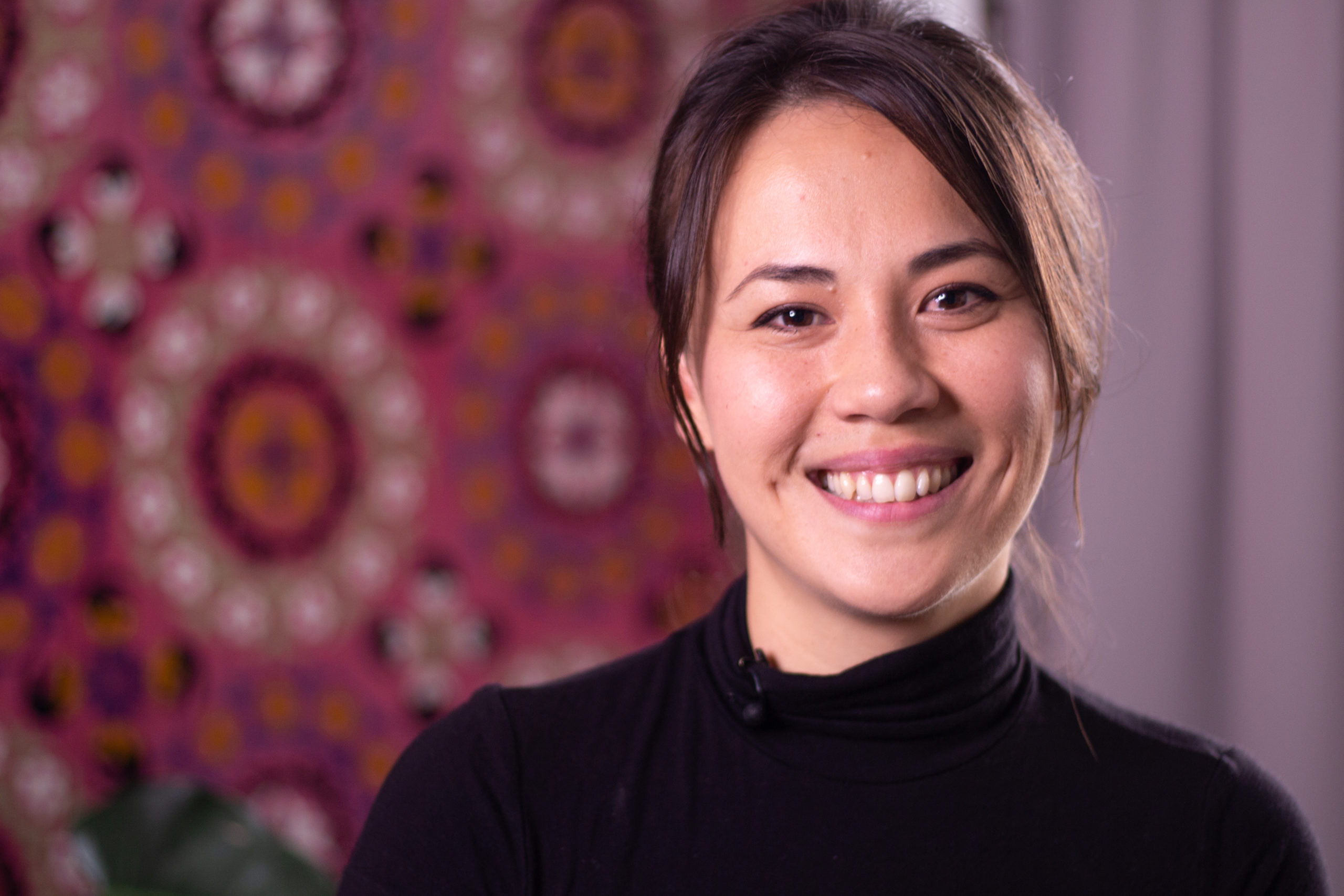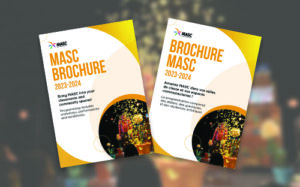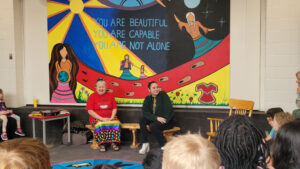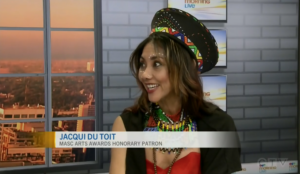Interview: Kseniya Tsoy is sharing her culture and creativity through community art
By Jessica Ruano | December 3, 2021

This interview was originally published on Apt613.ca
Kseniya Tsoy is a new Canadian, community-engaged artist originally from Uzbekistan. In her murals and workshops, she is passionate about introducing this part of the world through iconic patterns and traditional applied art techniques with a contemporary twist. In this interview, Kseniya talks about introducing others to her culture and how she has managed to offer school workshops in Ottawa… all the way from Uzbekistan!
Kseniya works on “From a Parking Lot to a Vibrant Community Hub,” one of Arts Network Ottawa’s Neighbourhood Arts Ottawa community-engaged arts residency projects, funded by Ontario Trillium Foundation and Ottawa Community Foundation.
MASC: What a treat to be learning about Uzbekistan through your work! I’m sorry to say I knew very little about the country before getting to know you as a MASC artist. What can you tell me about growing up there and what inspires you?
Kseniya Tsoy: As an artist, I consider myself lucky to have been born in Uzbekistan. I grew up surrounded by exuberant colours, intricate patterns, and mesmerizing mosaics. In Uzbekistan art is everywhere: traditionally, objects of function are beautiful masterpieces of craft. I realized how unique it was after I started travelling and seeing other countries, and I think these artworks are really worth sharing with the world. Especially because Uzbekistan’s culture is an amazing mix of influences from literally all parts of the world, due to its geographic and historic location right between Europe and Asia, at the very heart of the ancient Silk Road. Uzbek patterns and symbols can take you on a visual journey through histories, cultures, and religions of the world, and you will be fascinated how we, as humans, are more connected than you might have thought. That is my biggest inspiration: By sharing the culture where I am from, I can also address and celebrate the cultural diversity of the world, I can open a dialogue about other people’s heritage, and by the end of it, there is always connection that transcends difference.
Recently you’ve been sharing fun facts on Instagram about your country of origin, plus addressing stereotypes. Do you find social media an effective medium for sharing your culture with others?
While living and traveling abroad for the past 10 years, I realized how many people didn’t know about Uzbekistan. I was inspired to create an illustrated introduction to this part of the world to bust myths and stereotypes and also answer people’s most frequently asked questions. This is how “I am from Uzbekistan” was born and actually that started my journey as an artist. I started sharing it on my social media, and it got traction because people liked learning about a new culture and, surprisingly, even people from Uzbekistan found it informative. I think social media is a great medium for anyone, but especially for sharing and learning about cultures. For example, I purposefully follow people with life experiences different from mine—and I learn a great deal too!
A virtual workshop between Uzbekistan and Canada! Photo provided by MASC.
Since the pandemic began, you’ve been giving virtual workshops from Ottawa, from Toronto, and currently, from Uzbekistan. How has the shift to online programming affected your practice and your ability to create and share your work?
While I absolutely love the energy of in-person gatherings, I must say that I also do appreciate the benefits of online programming. As a young parent, it increased the accessibility of the arts world for me. Also, as someone with roots and family abroad, it allowed me to continue working even when I had to be out of Canada for family circumstances. I recently delivered a series of MASC workshops for a school in Ottawa from Uzbekistan and it worked really well! Who could even have imagined this before? The ability to connect across oceans and time zones and still make art together makes me feel like a true global citizen.
As a member of MASC, what do you gain through offering your workshops in schools and in the community?
I genuinely love people and especially children. And, of course, I love making art. I was not actually trained as an artist and, until recently, I didn’t even know that “community art” was a thing. I have been doing it for quite a long time without realizing that what I was doing was community art, and that it in itself can be a profession. It was actually when I was involved in a MASC mentorship with artist Nicole Bélanger via the Awesome Arts Festival two years ago that I realized that “this” is exactly what I would love to focus on doing. I applied to MASC right away and I am so proud to say I am a MASC artist today!
Making art with people and connecting beyond our differences is a real joy for me. In my work, I make a special effort to gather people who wouldn’t otherwise meet over a common artistic purpose. The magic of the human connection that happens there is my inspiration. In every workshop I get to connect with new people. I get to learn about them, their stories, and their cultures. Every experience leaves me more enriched as a human being. I am very grateful.
Kids at Holy Cross School participate in one of Kseniya’s art workshops. Photo: Valerie Nixon.
Why do you think it’s important for our local community to have access to professional artists?
Art brings beauty and joy to our lives. And this is the underlying importance of arts and culture as a basic human right. Besides that, I think it is important for local schools and communities to connect with professional artists in order to spark confidence and creativity, and foster the belief that the arts is and can be a legitimate profession. If I had met an inspiring professional artist when I was in school, I wouldn’t have wasted 15 years of my life studying and doing something others wanted me to do. I believe exposing children and community members to professional artists will help inspire them to realize that everyone is an artist, and if they at any point want to make it a profession, they very much can. And the world could definitely use more artists!
Latest News
View All Articles



